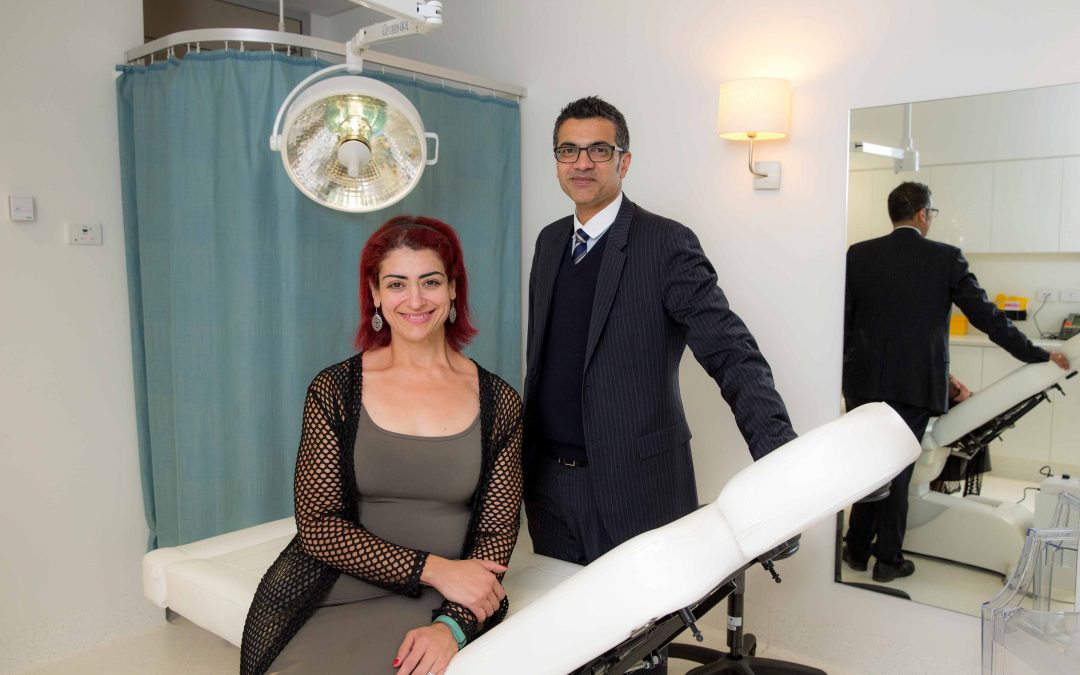Watch link to recent channel 7 new story.
No gift could beat the one Jenny Sheehan received at the beginning of February 2017 when she became the first patient to undergo major surgery at Macquarie University Hospital through a new ‘Access’ program – a model akin to a pro bono scheme.
The program aims to provide reduced-cost procedures to patients who otherwise could not afford them, with the cost reduction funded by the participating surgeon or hospital.
The brainchild of Head of Plastic and Reconstructive Surgery at MQ Health Associate Professor Anand Deva, the Access program is offered by MQ Health in collaboration with Integrated Specialist Health Care Education and Research Foundation (ISHCERF) – a not-for profit organisation committed to developing innovation in health care.
ISHCERF has launched a number of initiatives in integrated care over the past year and now partners with MQ Health in delivering the Access program. The program will be unique to the private hospital sector, where financial models allow flexibility to accommodate patients at a reduced cost.
“An overburdened public system under significant funding pressure, along with increasing out-of-pocket costs passed onto patients even with private health insurance have meant that a large number of Australians are struggling financially to be able to access the treatment they require,” said Associate Professor Deva.
“This is particularly true for people who need either certain innovative or unusual surgeries that public hospitals cannot offer, or for those who might need a specialised procedure only available at an advanced private facility – such as Macquarie University Hospital.”
Jenny was selected for the Access program because she presents such a case. After weighing 216 kilograms ten years ago, through a combination of bariatric surgery, exercise and diet, she now weighs just 81 kilograms.
The loss of 134 kilograms has resulted in an excessive amount of loose skin, which is causing ongoing health problems.
“My excess skin was hanging half-way down my thighs,” said Jenny. “I was constantly battling discomfort through skin irritation and sores, and other hygienic issues. Although I am able to work, my general quality of life was limited.”
Associate Professor Deva says that the three-part procedure of body contouring was the only solution that Jenny had to remove the excess skin. However, the procedure is not available to her through the public system and she cannot afford the costs of private health care.
“Jenny’s case is indicative of thousands of Australians who will, ultimately, cost the government more through unaddressed health conditions,” said Associate Professor Deva. “For others, increasing demand and fiscal pressure on public hospitals has resulted in longer waiting times, thereby worsening their burden of disease and in some cases worsening their prognosis.
“Australia clearly needs new paradigms for delivering health care. What the Access program aims to do is to alleviate current stresses on the system by the private health sector offering a limited number of affordable procedures every year for patients who have gone through a selection process based on appropriate criteria.
“The role of the ISHCERF is to provide bridging funds for specific cases and to negotiate with private hospital providers to allow patients to be treated at reduced or no cost. The Foundation is the body that will grow this program in the coming years, and we are very pleased to have Macquarie University Hospital as our first participating private hospital.”
CEO, Carol Bryant said that as a university-based hospital and a not-for-profit organisation, Macquarie University Hospital always set out to pioneer new paradigms of patient care. This MQ Health initiative in collaboration with ISHCERF has allowed us to do this.
“Our focus has always been to put the patient’s needs above all else, achieved through service innovation,” said Ms Bryant. “In the case of the Access program, because we are not linked to driving a profit in a traditional sense, as with other private healthcare providers, we can be more generous in opening our doors to patients who have private insurance or are self-insured but are finding the out of pocket costs prohibitive.”



